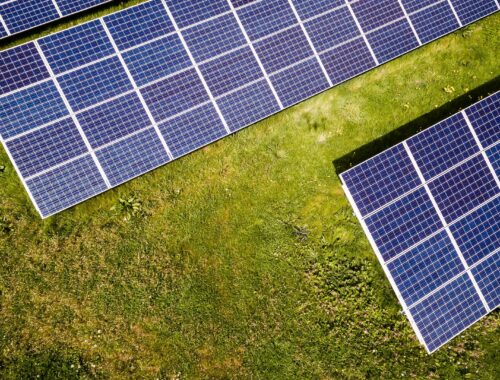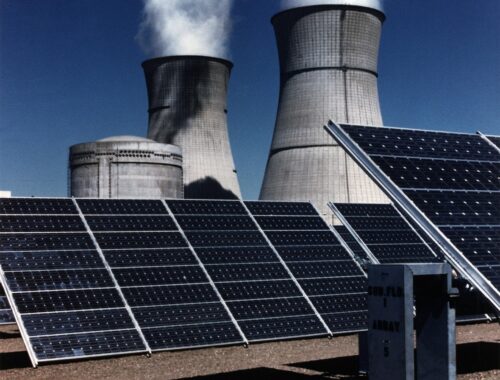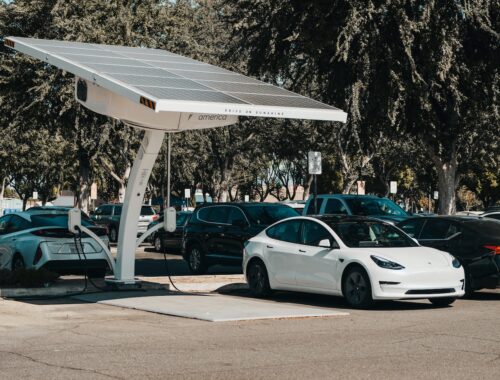
What are the negative effects of solar energy?
While solar energy is often touted as a clean, renewable source of energy with numerous benefits, it is important to note that there are also some potential negative effects associated with the use of solar energy. Understanding these negative effects is important for making informed decisions about the use of solar energy, and for ensuring that the benefits of solar energy outweigh the costs.
One of the potential negative effects of solar energy is the impact on wildlife and habitats. Solar energy systems, especially large-scale solar energy systems, can take up a significant amount of land, which can impact wildlife and habitats. For example, large-scale solar energy systems can displace wildlife, such as birds and reptiles, and they can also impact migratory patterns and disrupt ecosystems.
Another potential negative effect of solar energy is the impact on water resources. Solar energy systems require large amounts of water for cleaning and maintenance, which can impact water resources, especially in regions where water is scarce. In addition, some solar energy technologies, such as concentrated solar power (CSP), require large amounts of water for cooling, which can further impact water resources.
A third potential negative effect of solar energy is the impact on energy grids and transmission systems. Solar energy systems can generate significant amounts of energy, especially during peak hours of the day. This can impact energy grids and transmission systems, and it can result in overloading, blackouts, and other disruptions. In addition, solar energy systems can be affected by weather and other factors, which can result in fluctuations in the amount of energy generated, which can further impact energy grids and transmission systems.
A fourth potential negative effect of solar energy is the impact on the cost of energy. While the cost of solar energy has been decreasing in recent years, it is still a relatively expensive source of energy compared to traditional sources, such as coal, oil, and natural gas. This can result in higher energy bills for consumers, and it can make it more difficult for people to access clean, renewable energy. In addition, some regions may not have the infrastructure or resources to support the use of solar energy, which can result in higher costs and lower access to clean, renewable energy.
Finally, it is worth mentioning that the production and disposal of solar energy equipment can also have negative effects on the environment. The production of solar panels, batteries, and other components can result in greenhouse gas emissions, air and water pollution, and other environmental impacts. In addition, the disposal of solar panels and other components can also result in environmental impacts, as these components can contain hazardous materials and toxic chemicals.
It is also important to consider the potential long-term impacts of solar energy. For example, the materials used to make solar panels, such as silicon and other minerals, are finite resources that will eventually become depleted. This means that the production of solar panels will become more expensive, and it could result in a shortage of solar panels in the future. In addition, the production of solar panels can result in environmental impacts, such as deforestation, soil degradation, and water pollution.
Another potential long-term impact of solar energy is the impact on energy security. While solar energy is a clean, renewable source of energy, it is not always available, especially during periods of low solar radiation, such as during cloudy or overcast days. This means that the use of solar energy alone is not enough to ensure energy security, and it may require backup sources of energy, such as coal, oil, or natural gas.
It is also worth mentioning that the effectiveness of solar energy can be affected by the location and weather conditions. For example, in regions with low solar radiation, such as regions with frequent cloudy or overcast days, the effectiveness of solar energy can be reduced. In addition, weather conditions, such as heavy snow or rain, can impact the effectiveness of solar energy, as these conditions can cause the panels to become covered in debris or to lose their angle to the sun, which can reduce the amount of energy generated.
Furthermore, the maintenance and upkeep of solar energy systems can also affect their effectiveness. Solar panels and other components of solar energy systems can become damaged or dirty over time, which can reduce their effectiveness. In addition, the performance of solar energy systems can degrade over time, as the components age and lose efficiency. This means that regular maintenance and upkeep is important for ensuring the long-term effectiveness of solar energy systems.
Another factor that can impact the effectiveness of solar energy is the availability of financing and investment. While the use of solar energy has been increasing in recent years, the cost of equipment, installation, and maintenance can still be a barrier for many people. In addition, the availability of financing and investment can also impact the effectiveness of solar energy, as it can determine the scale and scope of solar energy projects.
Finally, it is important to consider the impact of solar energy on the economy. While the use of solar energy can create jobs and stimulate economic growth in the short-term, it can also result in job losses in other industries, such as the fossil fuel industry. In addition, the use of solar energy can result in higher energy prices, which can impact the economy, especially for businesses and low-income households.
In conclusion, while solar energy is a clean, renewable source of energy with numerous benefits, it is important to note that there are also some potential negative effects associated with the use of solar energy. These negative effects include the impact on wildlife and habitats, the impact on water resources, the impact on energy grids and transmission systems, the impact on the cost of energy, and the impact on the environment from the production and disposal of solar energy equipment. Understanding these negative effects is important for making informed decisions about the use of solar energy, and for ensuring that the benefits of solar energy outweigh the costs.
You May Also Like

Solar Power and Job Creation: Opportunities in the Renewable Energy Sector
July 3, 2023
Solar Power and Water Desalination: Addressing Global Water Scarcity
September 27, 2023

